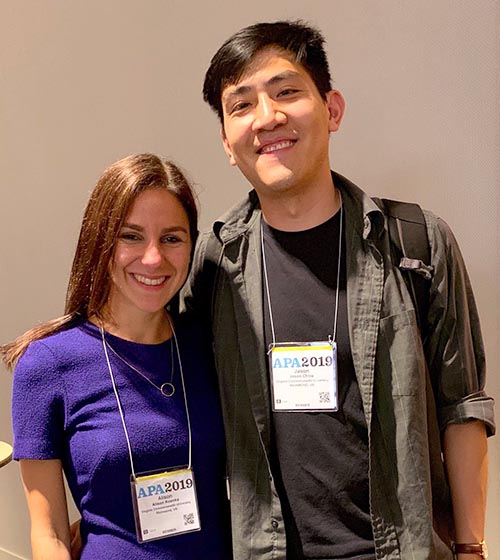Drs. Chow and Koenka awarded early career APA grants

Two VCU School of Education faculty members have been awarded early career research grants by the American Psychological Association’s Division of Educational Psychology, aimed at filling critical gaps in existing literature.
Jason Chow, Ph.D., assistant professor in the Department of Counseling and Special Education, and Alison Koenka, Ph.D., assistant professor in the Department of Foundations of Education, received news of the awards at the association’s recent annual convention in Chicago.
Chow’s study will examine how children’s language skills influence friendship development in kindergarten classrooms. Specifically, the aim of the study is to examine the social isolation of children who are at risk for specific language impairment (SLI).
“Because children with or at risk for SLI are at higher risk for poor academic, social and behavioral outcomes, identifying mechanisms through which this risk is more likely, and more importantly, through which we can prevent risk, is a top priority of our work,” said Chow.
He added that current research on the role of social network informants (e.g., teacher report vs. peer nominations) in the context of young children’s language and social development is sparse, and his study will prospectively focus on issues that fill critical gaps of knowledge.
Koenka’s study will investigate how students’ motivational beliefs in science predict performance in and pursuit of science across two critical academic transitions: high school and college. She will use the nationally representative High School Longitudinal Study dataset to do so.
“Prior work has established the importance of motivational beliefs in explaining performance in and pursuit of STEM, but there has been a disproportionate focus on samples that primarily consist of European-American, middle-class students, which limits the generalizability of prior research to underrepresented students,” said Koenka.
Koenka added that this study will be one of the first to examine how the relations between motivational beliefs and science outcomes depend on combined experiences of gender and race – such as female students who are from an underrepresented ethnic/racial minority group versus their non-underrepresented female counterparts. Koenka will also devote particular attention to exploring motivational beliefs among students who are Latinx or African-American to better understand the unique experiences of these students.